Are you facing issues with construction defects that are causing frustration and financial strain? Navigating the process of addressing these problems can be overwhelming, but having a clear, structured letter can make all the difference. In this article, we'll provide you with a comprehensive letter template for filing a construction defect claim, ensuring you communicate your concerns effectively and professionally. Dive in to discover how to assert your rights and get the resolution you deserve!
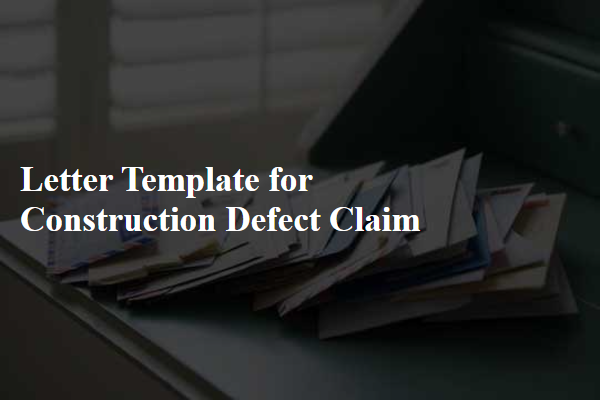
Detailed description of the defect
The construction defect in the newly completed residential property located at 123 Elm Street involves significant water intrusion issues. Multiple instances of water leakage were observed in the basement, particularly around the foundation walls, where improper waterproofing measures failed to prevent moisture penetration. The property, constructed in 2023, exhibits signs of mold growth on drywall, indicative of prolonged exposure to damp conditions. Additionally, the roofing system showed inadequate installation of shingles, leading to water pooling and subsequent leaks in the upper floor living spaces. These defects not only undermine the structural integrity but also pose health risks to the occupants.
Relevant contract and warranty references
A construction defect claim often cites various relevant contracts and warranty references that establish responsibilities and coverage. Standard forms of contracts, like the AIA Document A101, outline specific obligations of the contractor, which may include adherence to the building codes and quality standards. Additionally, warranties provided by manufacturers, such as a 10-year structural warranty or the two-year workmanship warranty, highlight coverage against defects and outline the process for filing claims. Notably, local building codes, such as the International Building Code (IBC) 2018, provide further regulations which must be followed. Documentation of correspondence regarding defects, attempts of repairs, and third-party inspections (obtaining reports from certified home inspectors) enhances the legitimacy of the claim, ensuring alignment with stipulated guidelines. Proper referencing of these documents underscores the basis for the defect claim.
Specific dates and timelines of the project
In a construction defect claim, precise documentation of project timelines is crucial. The construction began on June 15, 2022, at the residential property located at 123 Maple Street, Springfield. The expected completion date was September 30, 2022; however, actual project delays extended the timeline, with substantial completion reached on December 1, 2022. On-site inspections conducted on January 15, 2023, revealed significant issues, including cracking in the foundation and improper insulation installation, compromising building integrity. The architect's initial design plans, dated April 1, 2022, outline specifications not adhered to, emphasizing the necessity for adherence to building codes established by the Springfield Building Department. A follow-up inspection on February 20, 2023, confirmed ongoing construction deficiencies, prompting this formal defect claim for remediation actions.
Impact on property value and usability
Construction defects significantly reduce property value and usability, leading to financial loss and inconvenience for homeowners. Cracks in structural elements, such as foundation and walls, can compromise integrity, diminishing overall market appeal. Water damage from faulty roofing or plumbing systems fosters mold growth, creating health risks and driving potential buyers away. These issues not only lead to expensive repairs, often exceeding thousands of dollars, but also decrease property appraisal values, impacting resale potential drastically. In regions like California, where property values can reach over $700,000, even minor defects can lead to substantial economic ramifications, forcing homeowners to face unanticipated costs and prolonged usability challenges.
Expert reports or inspection findings
Construction defect claims often hinge on expert reports or inspection findings that confirm the presence of structural or material deficiencies. In multifamily housing complexes built between 2015-2020, common defects include water intrusion, foundation settlement, and roofing failures. Detailed expert analyses, often generated by licensed professional engineers or certified building inspectors, typically outline significant issues such as mold growth due to inadequate drainage systems, or cracks in the foundation exceeding acceptable tolerances of 1/8 inch. These documents provide critical evidence supporting a claim, detailing observed conditions in specific locations, such as 123 Main Street, and outlining necessary remediation measures and associated costs, which can reach thousands of dollars, further reinforcing the severity and urgency of the defect being addressed.
Letter Template For Construction Defect Claim Samples
Letter template of construction defect claim concerning structural damage.
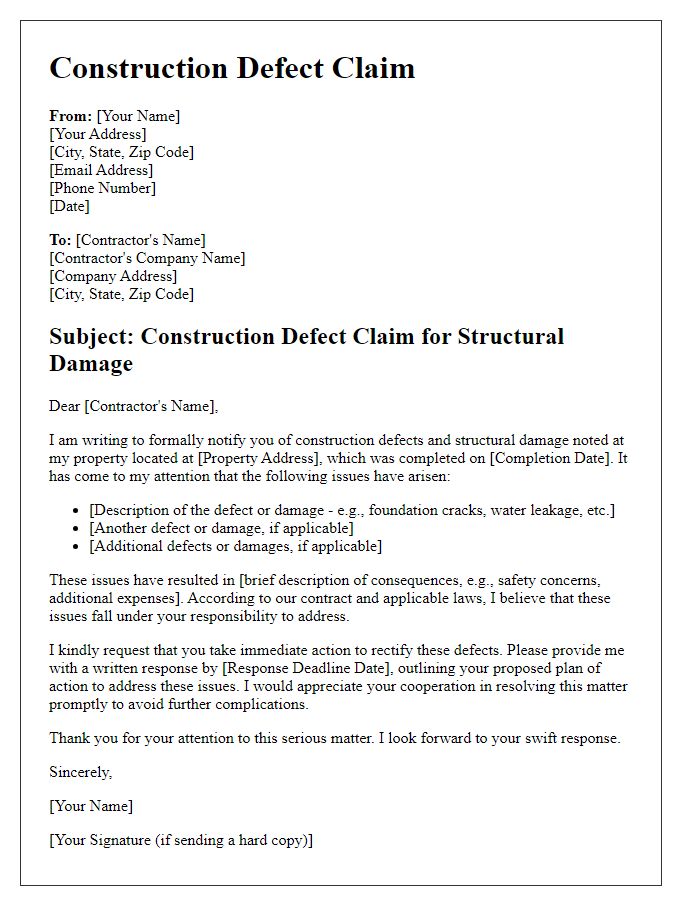
Letter template of construction defect claim for electrical code violations.
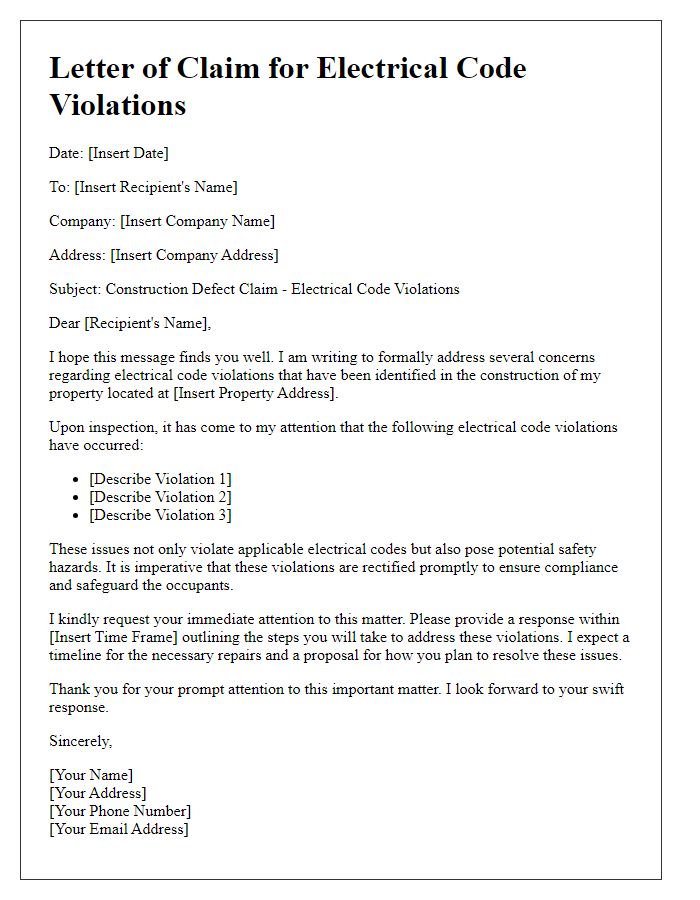
Letter template of construction defect claim regarding foundation problems.
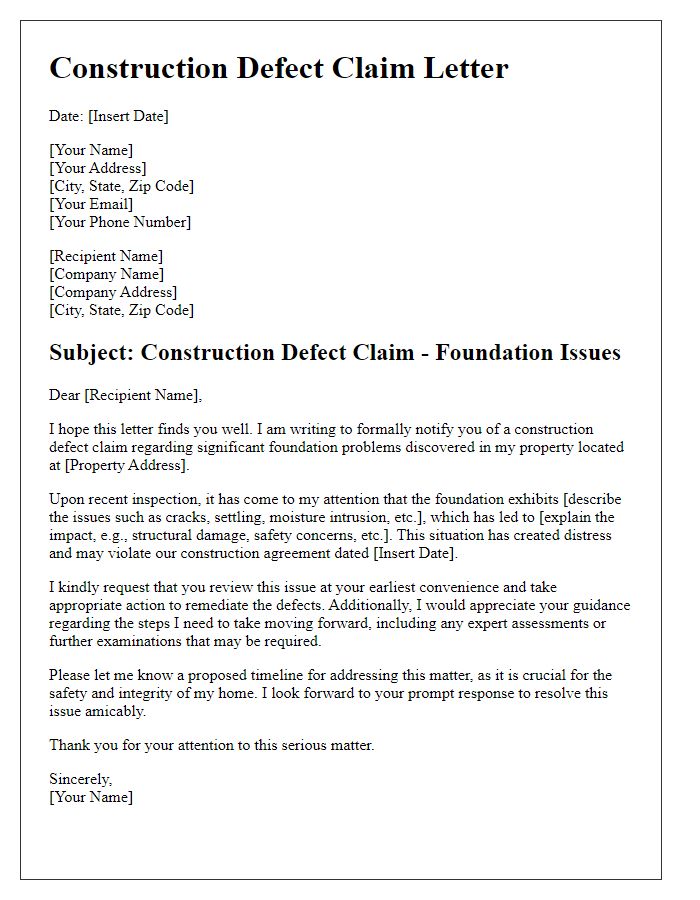

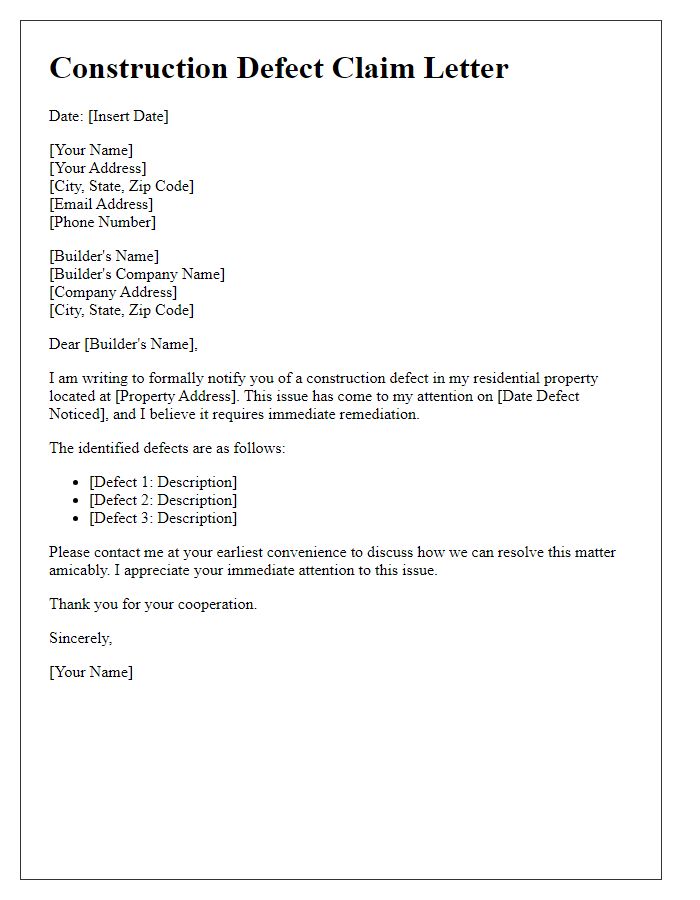
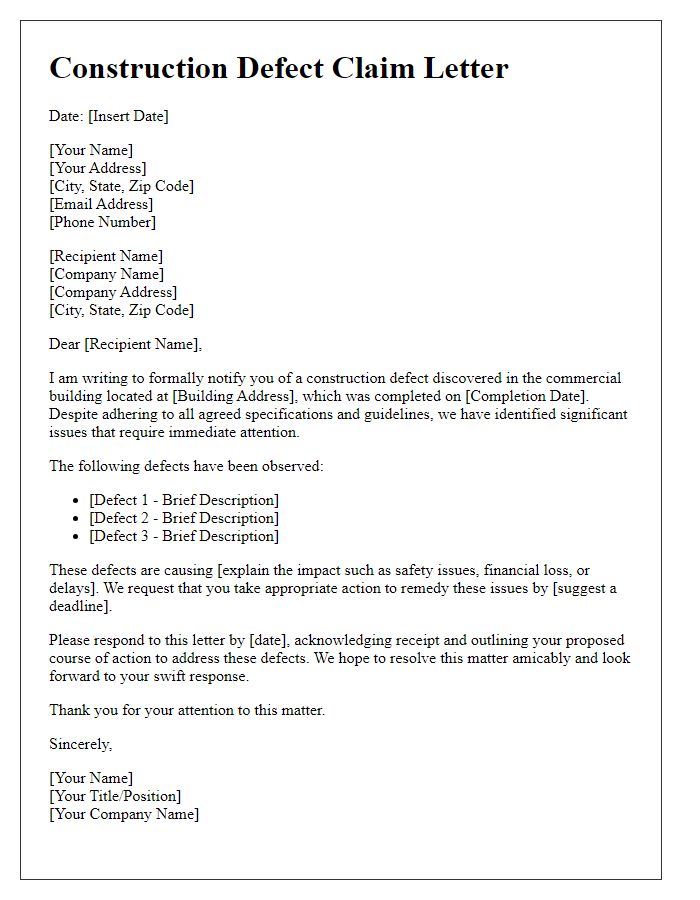
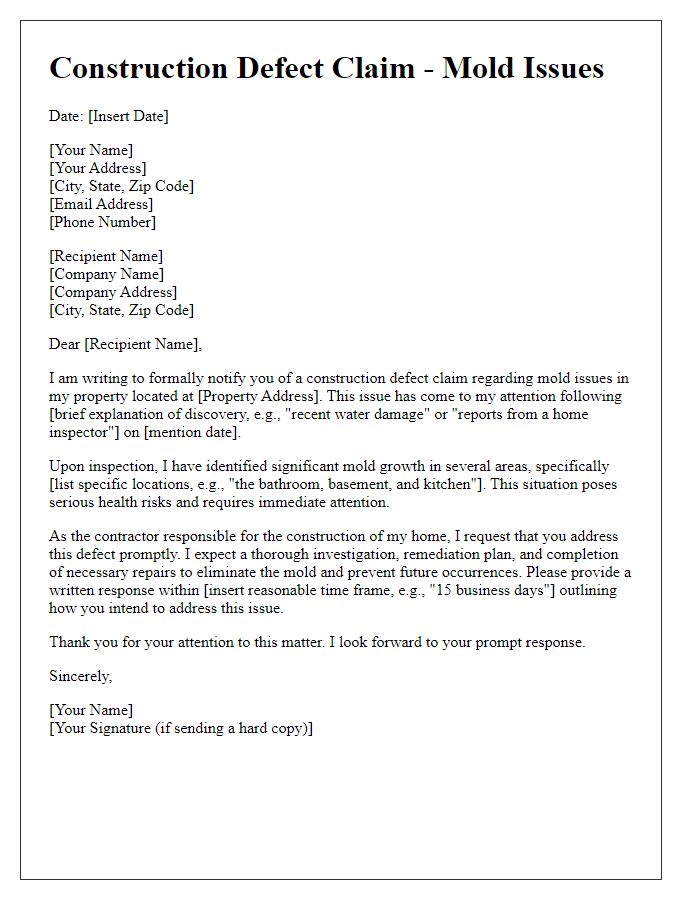
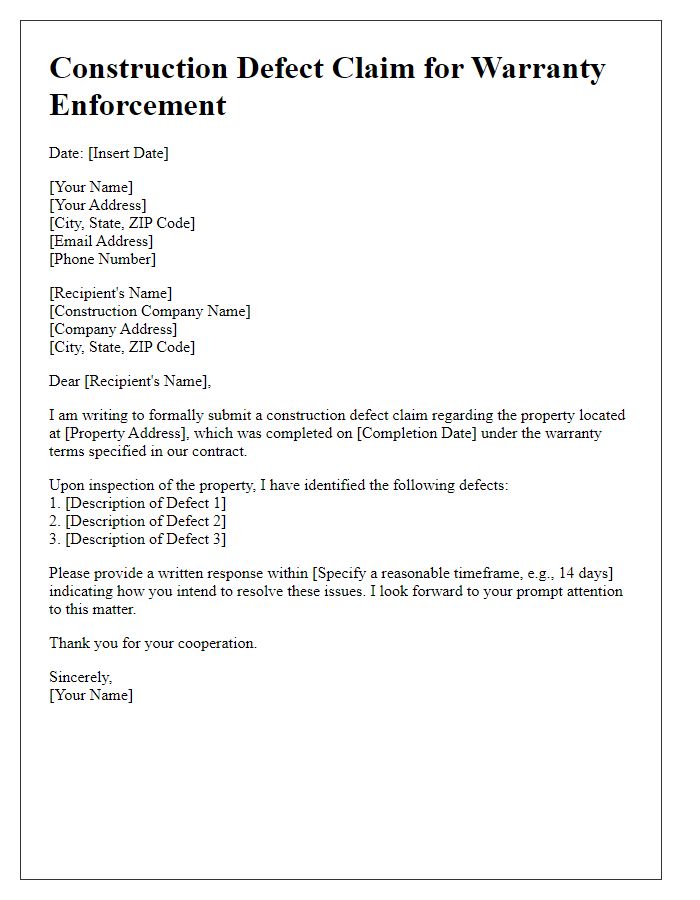
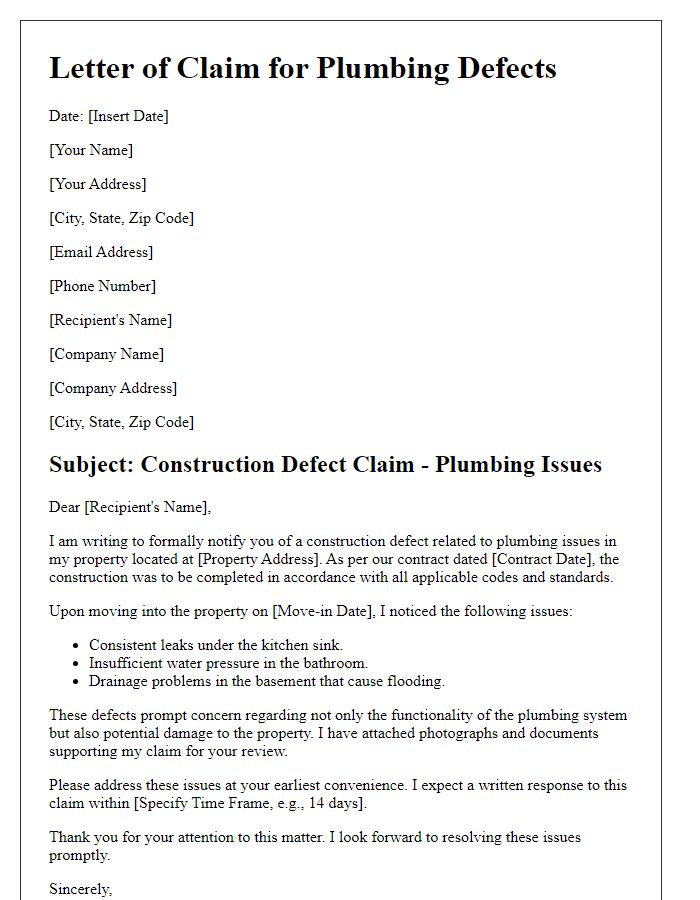
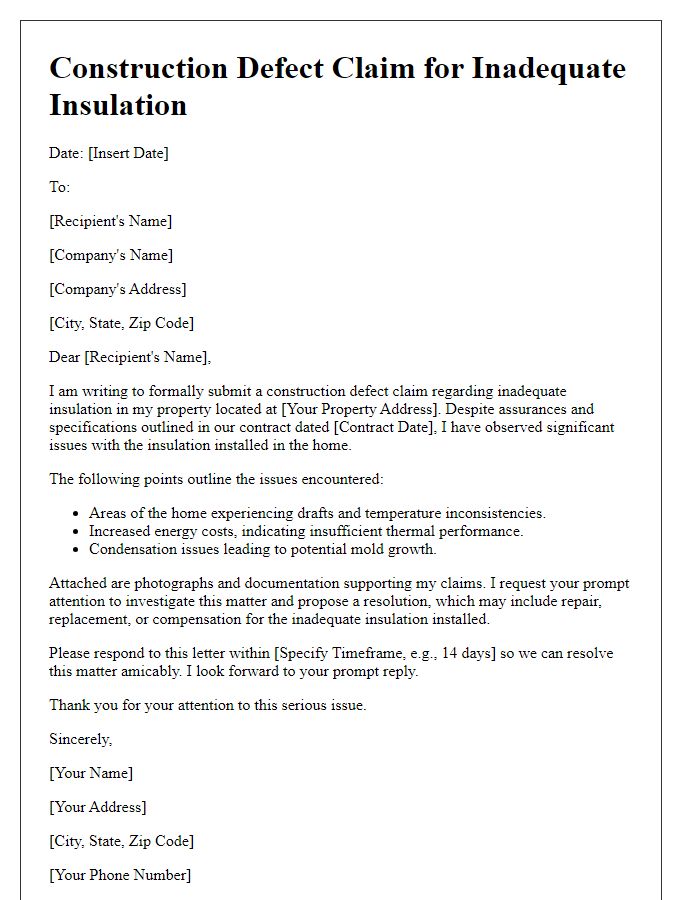
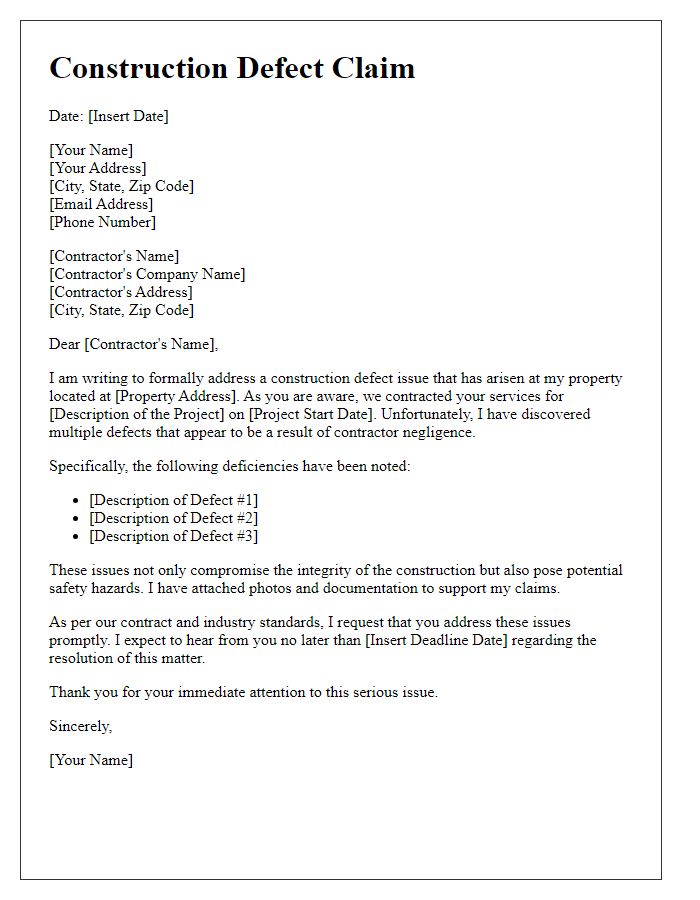

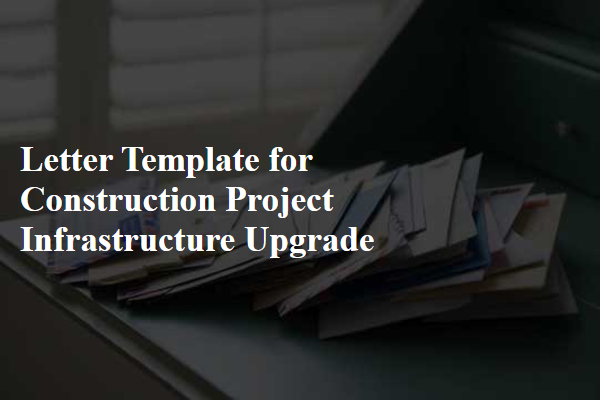
Comments